Raising farm animals as pets can be an incredibly rewarding experience for kids. Not only are many farm animals naturally gentle and kid-friendly, caring for them helps teach children responsibility and compassion. Farm animals also allow kids to learn about where their food comes from and connect with nature.
When choosing the right farm pet for your family, there are a few key things to consider:
- Space – How much room do you have available? Some farm animals like chickens need less space than larger livestock like cows or horses.
- Time – How much time can you devote to caring for the animal each day? Simple pets like rabbits require less daily care than milk-producing goats.
- Affection – Do you want an animal that will bond with and show affection towards your child? Certain farm pets like pot-bellied pigs are very social.
- Purpose – Do you want the animal to serve a purpose like providing eggs or fertilizer? Practical picks include chickens and pygmy goats.
With those factors in mind, here are the best farm animals to raise as kid-friendly pets:
1. Rabbits
Rabbits are one of the best starter farm pets for children. They are relatively low maintenance, don’t require much space, and have pleasant, gentle personalities. Kids will enjoy holding and cuddling these soft, fuzzy animals.
Kid-Friendliness
- Gentle, enjoyable to hold and pet
- Don’t mind being handled frequently
- Become tame and bonded with regular human interaction
Care Difficulty
- Easy to care for as long as basic needs are met
- Require less daily work than other farm animals
- Can be litter box trained for indoor housing
Space Needed
- A minimum hutch size is 2 ft x 3 ft x 2 ft for one rabbit
- Larger enclosure or outdoor run ideal for exercise and play
- Can free-roam indoors if properly bunny-proofed
Bonding Potential
- Become friendly and socialized with regular handling
- May hop over to greet known caretakers
- Enjoy being petted and sitting in laps
Usefulness
- Provide organic fertilizer from waste
- Can help control weeds and grass in enclosed yard areas
- Angora breeds produce soft wool for yarn and clothing
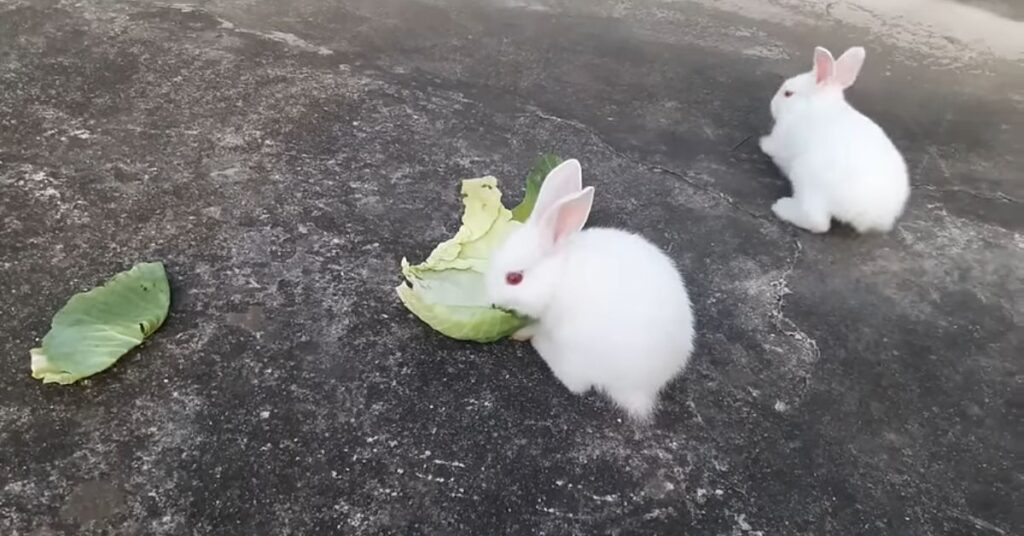
2. Chickens
For an interactive and productive pet, chickens are a top choice. Kids will love collecting fresh eggs and watching adorable fluffy chicks grow. Certain breeds are especially calm and child-friendly.
Kid-Friendliness
- Baby chicks enjoy being gently handled
- Some breeds like Orpingtons have sweet, docile personalities
- Follow their caretakers around seeking attention
Care Difficulty
- Require daily feeding, watering, and coop cleaning
- Susceptible to health issues like parasites if not cared for
- Need protection from predators at night
Space Needed
- Minimum of 2-4 square feet coop space per standard chicken
- Outdoor run of 8-10 square feet per bird ideal
- Can free-range in the yard if fenced
Bonding Potential
- Become attached to owners who regularly interact with them, especially if raised from chicks
- Come running when called to be fed or held
Usefulness
- Hens provide nutritious eggs nearly daily
- Help control garden pests and insects
- Fertilize yards with manure
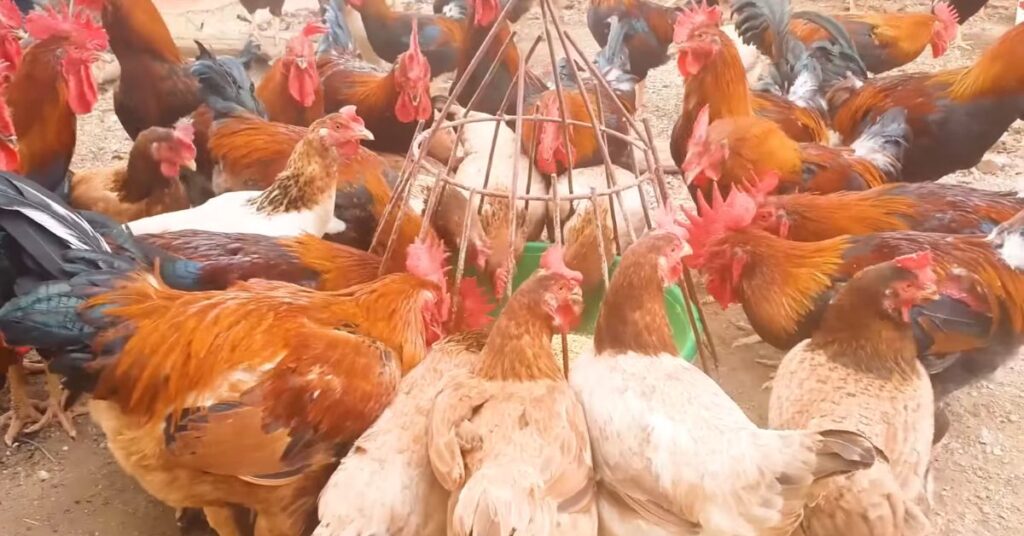
3. Ducks
Ducks have big personalities packed into feathered little bodies. They imprint strongly on their caretakers, following them around like lovable shadows. Most domestic ducks are hardy, low-maintenance, and friendly.
Kid-Friendliness
- Imprint on and form strong bonds with caretakers, especially if raised from ducklings
- Entertaining to watch waddling around the yard
- Unique quacking voices amuse children
Care Difficulty
- Require access to water for bathing and preening
- Need shelter from excessive heat
- Can forage to supplement feed
Space Needed
- Minimum of 4 square feet shelter space per duck
- Outdoor run or yard area to explore
- Child-size plastic pool works for water
Bonding Potential
- Ducklings raised indoors imprint and socialize with family
- Follow their humans around the yard when let out
- May quack excitedly when owners approach
Usefulness
- Certain breeds lay large nutritious eggs, sometimes daily
- Help control slugs, snails, and other garden pests
- Provide fertilizer for gardens and yards
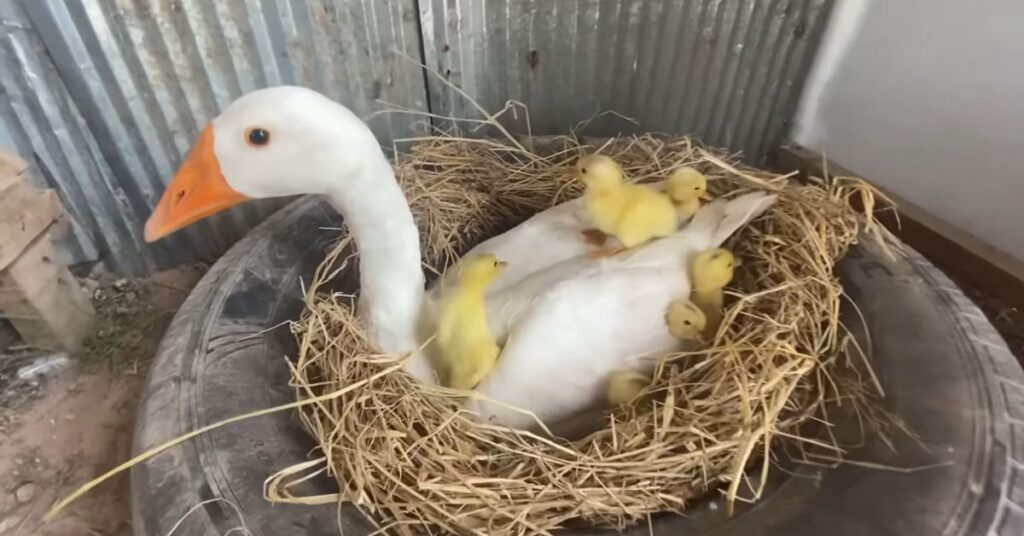
4. Pygmy Goats
Pint-sized pygmy goats have lively, gregarious personalities. They form close bonds with their people and love playing with children. With proper care, they make wonderful backyard pets.
Kid-Friendliness
- Naturally friendly and interact well with respectful children
- Entertaining antics amuse kids for hours
- Gentle enough for carefully supervised handling
Care Difficulty
- Require daily feeding, exercise, and social interaction
- Sensitive to heat, need shade and cooled water in summer
- Shelter must be predator-proof
Space Needed
- Minimum 15 x 15 foot enclosure for pair of pygmy goats
- Larger yard or pasture ideal for grazing and frolicking
Bonding Potential
- Form close attachments to caretakers, especially if bottle-raised
- Follow owners around hoping for attention and treats
- Enjoy being groomed and given affection
Usefulness
- Provide fertilizer perfect for gardens
- Will clear vegetation and weeds from enclosed areas
- Females can produce small amounts of milk
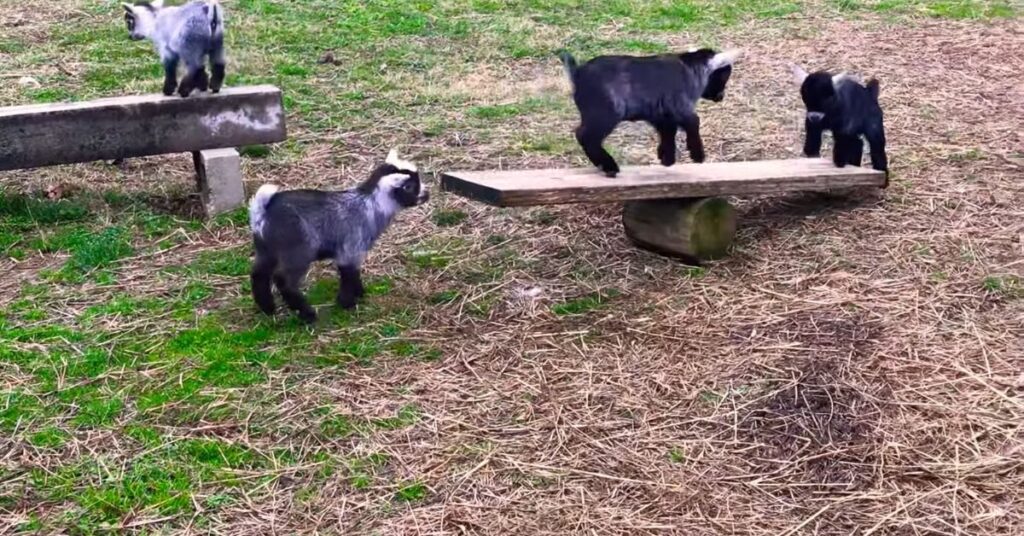
5. Sheep
For a classic farm animal experience, sheep can be a great choice. When bottle-raised, lambs become quite friendly. With proper fencing, sheep can graze contained yards. Their soft wool is a bonus.
Kid-Friendliness
- Bottle-fed lambs bond strongly with children
- Calm temperaments once accustomed to handling
- Should always be supervised due to size and strength
Care Difficulty
- Require rotational grazing or hay feeding
- Need annual shearing and regular hoof trimming
- More susceptible to health issues than goats
Space Needed
- Minimum of 1/4 acre for a few sheep
- Dedicated barn or shelter with enclosed stalls
Bonding Potential
- Bottle-babies imprint on caretakers as family
- Follow trusted humans around pastures
- Enjoy attention and being stroked if socialized young
Usefulness
- Provide organic lawn mowing and weed control
- Fertilize yards with manure
- Wool can be sheared, cleaned, and spun into yarn
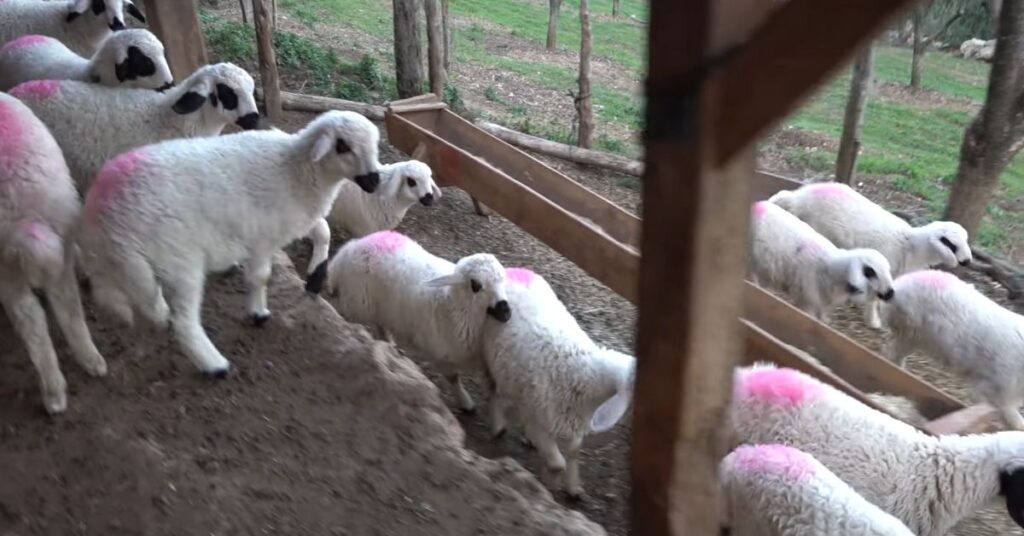
6. Alpacas
For their gentle, friendly nature and ultra-soft fleece, alpacas make wonderful farm pets. They don’t have extensive care requirements, but do need room to roam.
Kid-Friendliness
- Calm and gentle, unlikely to harm children
- Naturally curious and pleasant demeanor
- Soft fleece is soothing to touch
Care Difficulty
- Require a large grazing area or access to hay
- Routine toenail trimming needed
- Annual shearing of fleece
Space Needed
- Minimum 1 acre for multiple alpacas
- 8×8 foot shelter for each animal
Bonding Potential
- Warm up to gentle handling over time
- Follow trusted caretakers around pastures
- Enjoy having necks and cheeks scratched
Usefulness
- Produce pounds of valuable, hypoallergenic fleece yearly
- Graze and maintain pasture areas
- Fertilize yards with manure
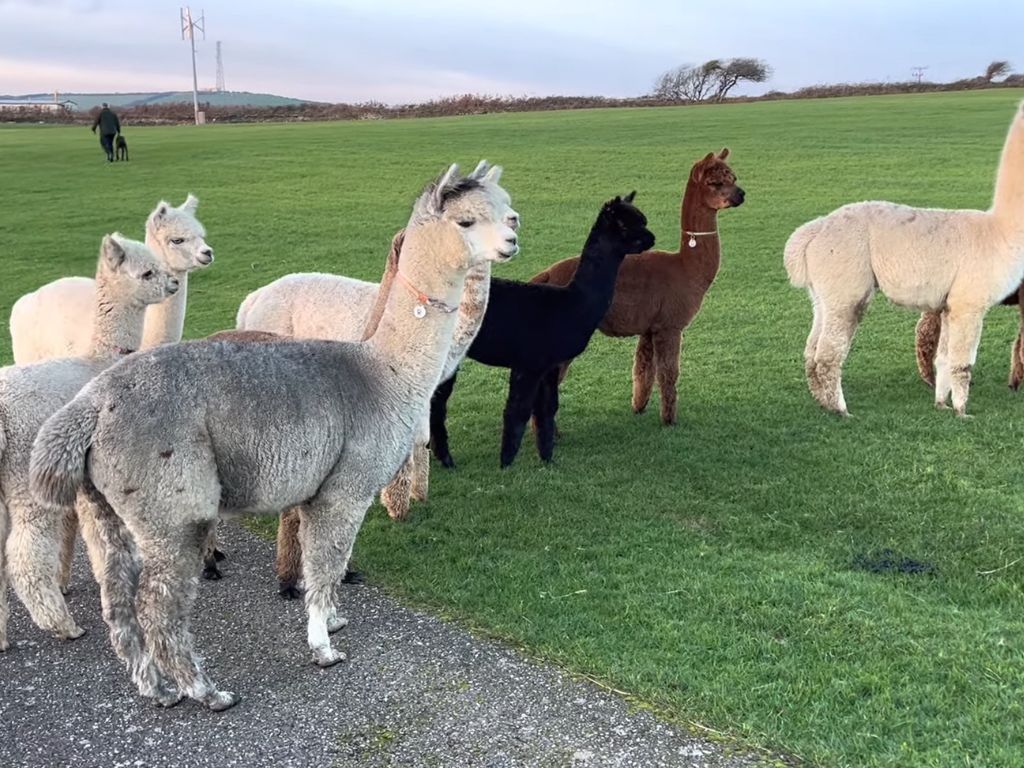
7. Pot-Bellied Pigs
For a pet with tons of personality, pot-bellied pigs are a fantastic choice. These petite porkers are smart and social, bonding closely with their families. They interact better than dogs or cats do with children.
Kid-Friendliness
- Naturally gentle disposition
- Extremely intelligent and trainable
- Love to play and interact with kids
Care Difficulty
- Require substantial outdoor space to root and graze
- Prone to obesity if overfed
- Need pest-proof shelter with bedding
Space Needed
- Half acre or more of pasture ideal
- 10×10 foot minimum shelter size
Bonding Potential
- Form tight bonds and enjoy close companionship
- Often kept as house pets due to affinity for people
- Love being rubbed on their bellies
Usefulness
- Help control weeds and vegetation
- Provide fertilizer for gardening
- Can be trained to walk on leash, do tricks
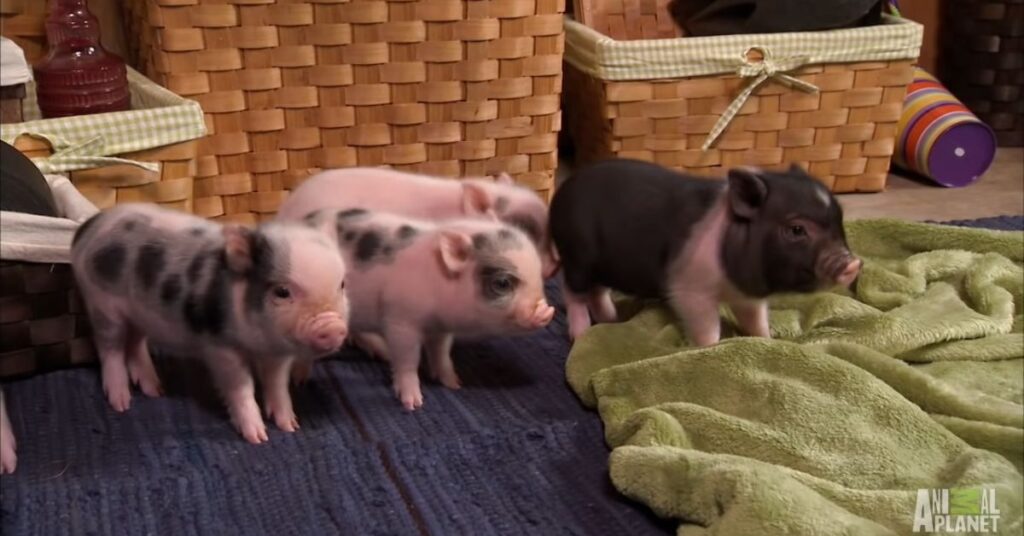
8. Horses
For animal-loving children that have plenty of outdoor space, horses make excellent pets. They become very attached to their young caretakers. Under supervision, most gentle horses can be ridden by kids.
Kid-Friendliness
- Form strong bonds with caring owners
- Typically mild-mannered with proper handling
- Great for supervised riding by children
Care Difficulty
- Require significant grazing land or hay
- Daily grooming and exercise needed
- Hoof care and vet expenses can be costly
Space Needed
- Minimum of 1-2 acres of pasture per horse
- 12×12 foot stall in barn for each animal
Bonding Potential
- Strongly attach to owners, especially when raised from foals
- Come when called and follow people around paddocks
- Enjoy grooming sessions and neck scratches
Usefulness
- Provide eco-friendly grass cutting
- Can be ridden for pleasure or to move livestock
- Therapy horses help special needs children
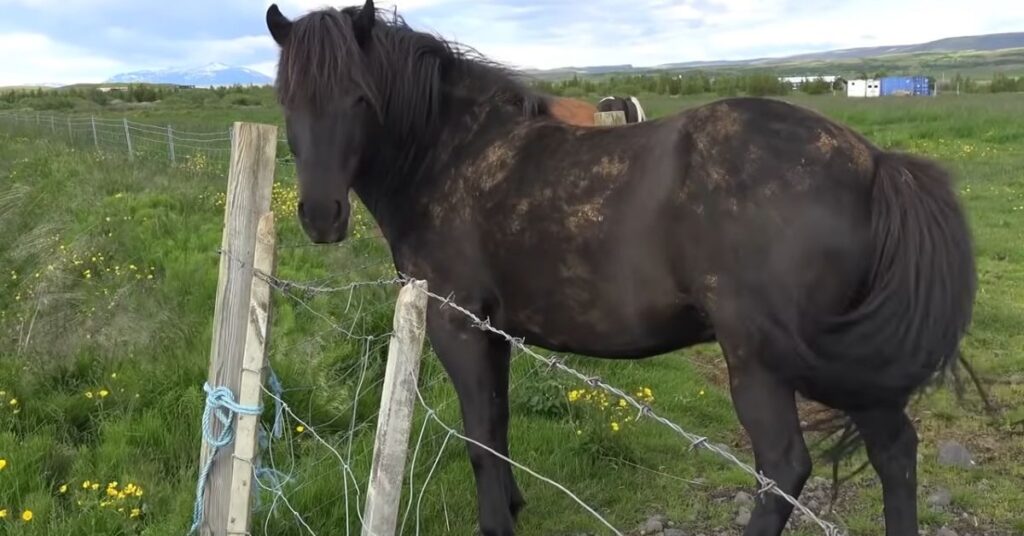
Best Farm Animals For Urban Pets
Many farm animals can thrive in urban and suburban environments. Here are the best farm pets if you live in town or have limited space:
Rabbits
With proper housing, rabbits do well as indoor pets or outdoors in a backyard hutch. They don’t require much room and are quiet.
Chickens
A small backyard flock of 3-5 hens provides fresh eggs without needing acres of land. Make sure to check local urban chicken ordinances first.
Ducks
Keeping 2-3 ducks is manageable even with a small yard. You’ll need a doghouse or shed for shelter and a kiddie pool or tub of water for swimming.
Pygmy Goats
Their small size makes pygmy goats suitable for large suburban lots of 1/4-1/2 acre. Provide them with climbing structures.
Sheep
With at least 1/4 acre of space, a few rescue sheep or lambs can be kept. Make sure fencing is very secure!
Pot-Bellied Pigs
These petite pigs need around 1/2 acre of grazing area but can be housetrained indoors as well. They will need shelter and rooted areas.
Best Farm Animals For Rural Pets
On larger rural properties and farms, you have more options for kid-friendly livestock! Here are great farm pets for acres of land:
Horses
At least 1-2 acres per horse is recommended. They need room to run plus a sheltered stall. Gentle mini horses can be kept on less land.
Cows
Cows require 2+ acres of high-quality pasture per head. They are natural grazers and produce ample fertilizer.
Goats
Happy goats need at least 1/4-1/2 acre dry lot or pasture plus an enclosed barn shelter. Make sure fencing can’t be jumped!
Sheep
With an acre or more of cleared pasture, sheep will thrive while keeping your grass neatly mowed. Rotational grazing prevents parasites.
Llamas/Alpacas
These camelids need 1-3 acres of grazing land per animal. They also help protect livestock from predators.
Pigs
Pastured pigs need around 1 acre of rotated land per 4-5 pigs. Provide a hut shelter on dry ground with wallowing mud holes.
Best Starter Farm Pets For Young Children
For preschool and early elementary aged kids, choose more compact, resilient farm pets that children can help with basic care of. Recommended starter pets include:
Rabbits – Gentle for petting and cuddling. Can have free run of a child’s room if bunny-proofed. Teach proper handling.
Chickens – Let kids help scatter feed and collect eggs. 3-4 hens can be managed by most young kids. Give safety tips.
Ducks – Have kids fill up a kiddie pool with water for ducks daily. Teach them not to chase. Ducks imprint on familiars.
Pygmy Goats – Under close supervision, allow children to walk and groom leashed goats. Assist with hoof trimming.
Guinea Pigs – Though not technically farm animals, cavies are great first pets that live happily indoors. Gently teach handling.
Pigeons – With adult help building a loft, pigeons are gentle flyers kids can care for. Teach not to squeeze.
Best Farm Pets For Interaction and Bonding
For children seeking the most interactive and affectionate farm animals, consider these highly socialable livestock:
- Pot-Bellied Pigs – Extremely bonded with their families and intelligent. Love being petted and held.
- Goats – Form strong attachments to human caretakers, especially if bottle-fed. Demand attention!
- Chickens – Follow owners around for treats and pets. Sit in laps if raised from chicks.
- Ducks – Imprint on caregivers who raise them, wanting to be close by. Very personable.
- Horses – Develop deep connections with owners. Run to fences for nose rubs or neck scratches.
- Rabbits – Recognize owners and will hop over for affection. Enjoy being cradled and stroked.
- Sheep – Bottle-fed lambs think of humans as their herd. Seek attention from trusted people.
Benefits of Raising Farm Animals as Pets
Beyond being adorable companions, raising small farm animals has many advantages for children:
Responsibility – Caring for another living thing builds accountability, empathy and maturity. Children learn the consequences when an animal is neglected.
Life Skills – Farm kids develop practical abilities like handling animals humanely, providing balanced diets, managing pastures, and treating basic injuries or illness.
Connection with Nature – Interacting with livestock gives children a profound appreciation for the natural world and livestock’s important roles on a working farm.
Science Education – Raising farm animals teaches children volumes about breeding, reproduction, biology, zoology, and genetics as they witness the animal lifecycle.
Food Origins – Understanding exactly where milk, eggs, wool, and meat come from starts early for children raising livestock. They gain a deeper connection to their food.
Business Skills – Caring for market animals and joining farming clubs like 4-H and FFA builds valuable entrepreneurship and money management skills.
Exercise – Chores like walking lambs or riding horses keeps children engaged in healthy physical activity and outdoors. Farm kids get strong while avoiding technology overuse.
Overall, letting your kids experience hands-on farm animal husbandry is beneficial for developing capable, considerate, independent adults with a well-rounded education and skillset. The life lessons and memories they gain are priceless.
Frequently Asked Questions About Farm Animals as Pets
Are farm animal pets a big commitment?
Yes, any type of livestock requires a long-term commitment. Be prepared for daily feeding and care lasting 10-15 years in some cases. Do ample research on the animal’s needs before getting one as a pet.
What’s the best starter farm pet for a preschooler?
Rabbits, chickens, ducks, and pygmy goats are good with proper supervision. Have the child help with age-appropriate tasks like feeding and brushing but monitor closely.
Should we get one pet or a pair?
Most farm animals are herd creatures and do best with a companion of the same species. Have at least two chickens, goats, ducks, etc if possible so they have a friend.
Do farm pets need vaccines and vet care?
Yes, livestock need regular vet checkups, deworming, and sometimes vaccines. Establish a relationship with a farm vet before issues arise, and always isolate and call the vet for any sign of contagious illness.
Can farm animals safely live inside with kids?
While baby chicks can be brooded indoors, most adult farm animals are only suited for outdoor living due to space, waste, and ventilation needs. Never leave small children unsupervised with livestock.
Is it okay for kids to name animals raised for meat?
If your child becomes very attached to a market animal, you may decide to keep it as a pet or sell it to another home. Parents should have frank discussions about the intended purpose of livestock.
What’s the best way to find farm animal breeders or rescues?
Contact local 4-H clubs, veterinary offices, farming supply stores, or agriculture teachers to find reputable farm animal breeders. Check shelters and sanctuaries when adopting rescue animals.
Final Thoughts
Welcoming home gentle, kid-friendly farm animals makes for an extremely fulfilling childhood. Children develop confidence and a well-rounded skillset while forming close bonds with their animal friends. With proper space and care, farm pets bring joy and invaluable learning for years to come. Make lasting memories raising your own lovable chickens, goats, rabbits, and more!
